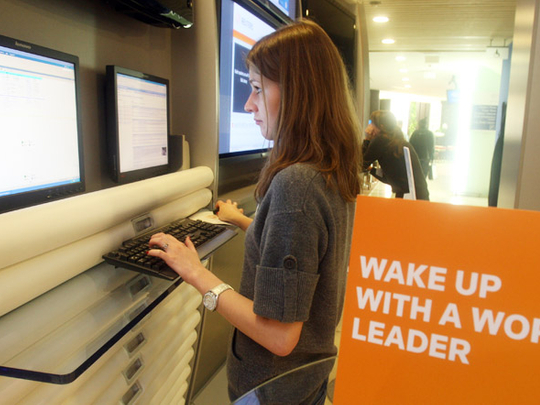
Davos: The World Economic Forum's (WEF) founder Klaus Schwab joined me to discuss exactly how different Davos was from a year ago.
RICHARD QUEST: The policymakers — they must redesign the way they control the system, and the institutions that do it. And then that rebuilding of trust. Trust — trust — again, you going to hear it a lot over the week. But changes must be something people can believe in short and long term.
KLAUS SCHWAB: It is. And people are thinking much more why the fire happened. And such is why we have seen rethinking, redesigning, and rebuilding. And when we talk about rethinking, we speak mainly about values. When we speak about redesigning, we speak about the systems, like the financial system. And rebuilding the institutions.
Is there a danger that this year becomes a bit self-congratulatory, that, "Well, we did very well. We looked into the financial abyss, but we didn't fall over?"
Not at all. Because first, don't forget it was the G20 heads of state and government which prevented the fall over. And the price for not being fallen over, still would have to be paid. And we see now, in terms of the debts of governments, in terms of fiscal pressures, and I think people are very concerned that the crisis will have a next phase which still has to be defined.
The idea of rebuilding, redesigning, and rethinking — I sometimes wonder — it's a nice slogan, but what does it mean? And for the participants coming here is there a danger that it becomes grandiose, woolly talk?
Why should it become grandiose, woolly talk when you have, let's say, people who spent five days who come from all stakeholder groups of global society, and they are all concerned. When I was talking to the people in advance of this meeting, you see the degree of concern which now prevails society, and I should say business leaders, and government leaders.
Because, sir, many of the bankers who come here this year...
Two hundred forty...
... come here on an orgy of bonuses, and a systemic failure to reorganise a year after the crisis. That's why people question it.
Yes, but they still are coming. And they know this issue will come up very much on the agenda. So you see here a certain degree of openness, at least to discuss the issue.
Do you fear the bankers who are coming this year to Davos are going to use this as a lobbying tool against regulatory reform, whether it's from the Obama administration, the British government or the European Union? They're going to basically lobby for their own vested interest. Or is that a proper use of Davos?
I think Davos is built on dialogue. Of course everybody will try to push his own interests. But at the end you become aware that it's not only your interests that count, but there are other groups who have different interests. And if you can find under that in the process of interaction in Davos — your own point of view — I think then we have done a great achievement.












